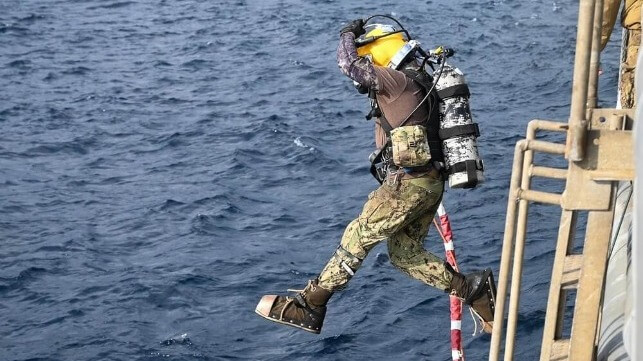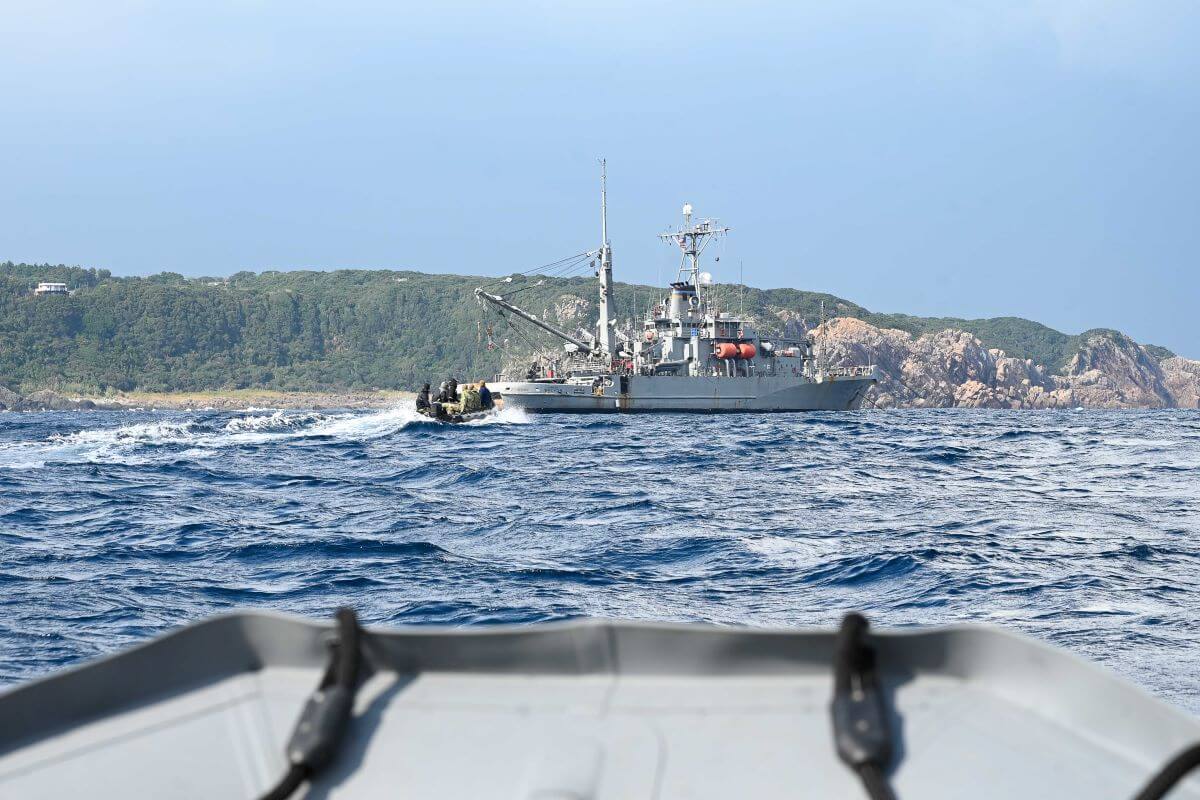U.S. Navy Divers Recover Wreckage From Downed Aircraft off Japan

The U.S. Navy has recovered a substantial part of the wreckage of the V-22 Osprey that crashed off the coast of Yakushima Island, Japan according to Japanese media.
Multiple Japanese outlets obtained photos and videos of the salvage ship USNS Salvor returning to port with tarpaulin-covered debris on the back deck. Visible items include an apparent propeller and engine protruding from underneath the cover. According to Japanese paper Yomiuri Shinbun, the salvaged debris also includes a segment of the fuselage where the crew was seated.
Civilian-crewed USNS Salvor is equipped for hardhat diving and the recovery of heavy loads from the seabed, and has been deployed for aircraft salvage projects before. A team from Mobile Diving and Salvage Unit One deployed with Salvor to conduct the underwater search and rigging work.
On Nov. 29, a Japanese fisherman notified the Japan Coast Guard that an aircraft was in trouble off Yakushima. One of the engines appeared to be on fire, he reported. Five minutes later, the plane disappeared off tracking radar.
According to the U.S. Air Force, the aircraft was a CV-22 Osprey from a special-operations squadron at Kadena Air Base, Okinawa, where the U.S. military maintains a large presence.
None of the eight crewmembers aboard are believed to have survived the crash, and seven bodies have been recovered to date.
The salvage operation is expected to continue, with a focus on search and recovery. "The primary combined Japan-U.S. effort is to locate and recover our eighth airman,” the U.S. Air Force said in a statement.
 USNS Salvor off Yakushima (USN)
USNS Salvor off Yakushima (USN)

that matters most
Get the latest maritime news delivered to your inbox daily.
Multiple crashes involving the Osprey have occurred over the course of the aircraft's history, causing more than 60 fatalities (including deaths during testing). The aircraft has significant performance advantages over helicopter designs, but it is known to have problems with a complex clutch assembly, which can result in loss of control if it malfunctions. Statistically, it has a relatively low mishap rate for a military aircraft - about three problems per 100,000 flight hours - but its large passenger payload and unusual design have ensured that fatal Osprey crashes receive outsize attention.
Senators Edward J. Markey and Elizabeth Warren (D-MA) and Congressman Richard E. Neal (D-MA) have asked the Pentagon to review the safety of the V-22 Osprey aircraft. The Department of Defense has initiated a stand-down for Osprey operations across all service branches pending the outcome of an investigation, with a limited exception for emergency Marine Corps operations in the Red Sea.
